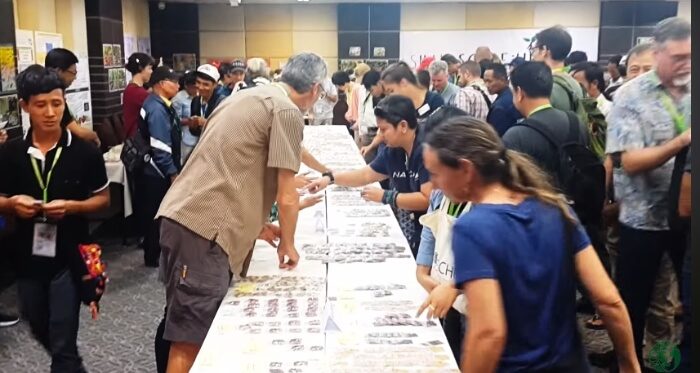Conferences on agriculture, which bring together specialists and amateurs, are essential centers for innovation and knowledge sharing in the sector. These gatherings of farmers, scientists, legislators, and business executives create an atmosphere that is ideal for knowledge exchange, teamwork, and development. You might wonder, why should you attend an agriculture conference.
It is essential to attend agriculture conferences to keep informed, network, and learn from specialists. This is a chance to broaden your knowledge and help the agriculture sector flourish.
In this blog, we’ll dive deeper into the myriad reasons why attending an Agriculture Conference is not only beneficial but also essential for anyone passionate about the future of farming and sustainable agriculture.
Impacts of Agriculture Conferences on its Native Sector
Agriculture conferences help farmers, researchers, and business owners gain new ideas that improve their industry and overall profits. These events bring experts from different places, creating fresh strategies that modernize outdated methods for better farming outcomes. Many countries, including Canada, hold major events, and especially the conferences in Canada allow local farmers to connect with global experts.

Farmers learn about new technology, climate changes, and modern tools that help them grow better crops every season. These events also introduce business strategies, helping small farmers sell their produce without struggling in competitive markets. Many attendees leave with fresh ideas that increase profits, reduce costs, and improve land use.
Agriculture conferences also give policymakers insights into real farming problems, leading to better laws that benefit farmers and industries. Meeting industry leaders allows attendees to form partnerships that create better supply chains and more sustainable farming methods. This positive impact helps the agriculture sector grow and meet future demands.
Types of Agriculture Conference
Farming has many types and ways, and there are lots of meetings about them. Some talk about using new tools, and others talk about agriculture without hurting nature. Here are some main kinds of farming meetings.
Tech-Innovations in Agriculture
Modern farming leans heavily on technology, making it a central theme. Conferences under this banner explore innovations like drones, AI, soil sensors, and robotics. They not only introduce attendees to new tools but also discuss their real-world applications and the challenges they present, ensuring that the agricultural sector remains progressive and efficient.
Organic Farming and Sustainability
Sustainability and environmental concerns steer many agricultural pursuits. These conferences are centered on organic farming methods, natural pest control solutions, green farming technologies, and crop rotation benefits. Emphasizing earth-friendly solutions, they offer a platform for the exchange of ideas on sustainable farming.
Livestock and Poultry Management
Animal farming, with its intricate dynamics, is a significant branch of agriculture. Conferences dedicated to this sector touch upon the latest in husbandry techniques, advancements in feed nutrition, breeding methodologies, and also the crucial aspect of disease management. Ensuring ethical treatments and innovations, these events serve as a knowledge hub for livestock farmers.
Aquaculture and Fisheries
With the growing importance of marine resources, water-based farming is gaining momentum. Such conferences dive deep into sustainable fishing techniques, aquaponics systems, fish breeding, and disease control in marine populations. Here, the focus is on balancing high-yield outcomes with ecological responsibility.
Agroforestry and Land Management
Integrating trees with agricultural activities offers promising solutions. Conferences on this subject discuss soil conservation, the mutual benefits of tree-crop interactions, and strategies for sustainable wood sourcing. The overarching theme revolves around the coexistence of trees and crops for maximized benefits.
Agribusiness and Market Dynamics
The business side of agriculture cannot be overlooked. Conferences in this segment dissect supply chains, emerging market trends, marketing strategies, and intricacies of global trade dynamics. They equip attendees with actionable insights to thrive in the global agribusiness market.
With these specialized conference categories, stakeholders from various facets of agriculture can immerse themselves in discussions and innovations tailor-made for their interests and needs.
Why Should You Attend an Agriculture Conference?
The complex field of agriculture is always changing, with new problems and methods popping up all the time. As all of this is happening, the issue of “Why Should You Attend an Agriculture Conference?” comes up. Let’s examine the several advantages in more detail:
Knowledge Upgradation
Agriculture conferences continuously welcome new methodologies and strategies. By attending conferences, you’re exposed to these updates firsthand. Not only do you learn about new crops, but you also get to understand varied farming techniques and research findings.
Networking Opportunities
A good connection can make all the difference in farming. Organizers of conferences and events play a pivotal role in bringing together a diverse group of experts, innovators, and enthusiasts. By mingling at these carefully curated gatherings, you can forge beneficial collaborations, find suppliers, or even identify new markets for your produce. The seamless organization and diverse programming facilitate these interactions event coordinators provide. This makes each conference a vital hub for growth and opportunity in the agricultural sector.
Exposure to Technology
Modern agriculture intertwines deeply with technology. These gatherings often showcase the latest technological marvels, from drones to AI-driven analytics. Understanding these tools can help streamline operations, making your farm more efficient and productive.
Skill Enhancement Workshops
Beyond traditional lectures, many conferences host interactive workshops. These sessions provide hands-on experience, from soil testing to advanced planting techniques. It’s a practical way to acquire new skills or perfect existing ones, ensuring you remain at the forefront of best practices.
Sustainable Farming Practices
With the global push towards sustainability, eco-friendly farming is gaining traction. Conferences delve deep into practices like organic farming, water conservation, and reducing carbon footprints. By adopting these methods, you contribute to a healthier planet while ensuring long-term farm viability.
Business and Marketing Insights
Agriculture isn’t just about sowing and reaping; there’s a business side too. Conferences provide insights into market trends, pricing strategies, and branding essentials. By absorbing this knowledge, you can better position your products, tapping into lucrative markets and maximizing profits.
An agriculture conference is a melting pot of knowledge, skills, and opportunities. Whether you’re a seasoned farmer or a newbie, attending these events can significantly elevate your agricultural journey, both in terms of practice and business prowess.
How to Maximize Your Agriculture Conference Experience?
Attending an agriculture conference can be a transformative journey, rich in knowledge and networking. Yet, to truly tap into its potential, one must approach it with a strategic mindset. Here’s a step-by-step guide to maximizing your experience:
Step-1. Pre-Conference Research
Before the event, familiarize yourself with the schedule, speakers, and topics. Identify sessions that align with your goals and needs. This preliminary research ensures you prioritize the most beneficial parts of the conference.
Step-2. Set Clear Objectives
Define what you wish to achieve: whether it’s learning a new technique, networking with industry leaders, or exploring market trends. With clear goals, you can navigate the conference more purposefully and efficiently.
Step-3. Engage Actively in Sessions
Actively participate in sessions by asking questions and contributing to discussions. Engaging ensures a deeper understanding and encourages connections with fellow attendees and experts. It transforms passive learning into an interactive experience.
Step-4. Take Notes and Document Learnings
Always carry a notebook or a digital device for note-taking. Jot down key points, innovative ideas, and potential follow-up actions. These notes will serve as a valuable reference post-conference.
Step-5. Network Intentionally
Beyond the learning, conferences are about building relationships. Set aside time to mingle, attend networking events, and initiate conversations. Aim to create meaningful connections rather than just collecting business cards.
Step-6. Visit Exhibit Booths
Most conferences feature an exhibition area showcasing new agricultural technologies and services. Allocate time to explore these booths, engage with vendors, and understand the potential benefits of showcased products.
Step-7. Reflect and Implement Post-Conference
Once the event concludes, take time to reflect on your takeaways. Strategize how to implement learned techniques or technologies in your farming operations. Also, follow-up on networking leads to nurturing new relationships.
Step-8. Share Knowledge with Your Team
If you have a team or community, don’t keep your insights to yourself. Sharing what you’ve learned is crucial. Teach them what you’ve discovered because it helps them and reinforces your own understanding. It’s a win-win that boosts everyone’s knowledge and improves the agricultural community as a whole.
Participating in an agriculture conference can be a gateway to growth. By following this guide, attendees can ensure they extract maximum value, paving the way for enhanced farming practices and fruitful professional relationships.
Pros and Cons of Attending an Agriculture Conference
Agriculture conferences offer attendees a wealth of information and networking opportunities. However, like any event, there are both upsides and potential drawbacks. Here’s a balanced look at the pros and cons of attending:
Pros:
- Knowledge Acquisition: Access to cutting-edge farming techniques, practices, and research findings broadens one’s agricultural horizon.
- Networking: Build valuable relationships with industry leaders, fellow farmers, and potential business partners, opening doors to collaboration.
- Technological Exposure: Discover the latest in farming technology, from AI-driven solutions to precision agriculture tools, enhancing farm efficiency.
- Skill Enhancement: Participate in hands-on workshops and training sessions, honing both new and existing agricultural skills.
- Market Insight: Understand the dynamics of local and global agricultural markets, aiding in better product positioning and sales strategies.
- Sustainable Approaches: Learn about eco-friendly and sustainable farming practices, contributing to a healthier environment and sustainable yield.
- Problem-Solving Forums: Engage in discussions, debates, and brainstorming sessions addressing common agricultural challenges.
Cons:
- Time Commitment: These events can be lengthy, potentially conflicting with tight farming schedules or peak seasons.
- Associated Expenses: The costs of travel, lodging, meals, and conference fees can add up, potentially straining budgets.
- Information Overwhelm: With a plethora of sessions and data, attendees might feel swamped or find it challenging to discern actionable insights.
- Relevance Concerns: Some topics or sessions might not align with an attendee’s specific needs or interests, leading to potential time wastage.
- Personal Commitment Clashes: The timing of conferences might conflict with personal events or key farming activities, demanding tough choices.
When considering attending an agriculture conference, it’s beneficial to weigh these pros and cons to make an informed decision tailored to individual needs and circumstances.
Bottom Line
Agriculture is vital for our survival, always growing and changing with new ideas and tools. Why should you attend an Agriculture Conference? is a question many ask. These events are where people can learn about the newest ways of farming and meet others who love farming too.
There are many reasons to join these meetings. They teach about the latest farming trends, give hands-on experience, and let farmers meet and talk. These talks can lead to new partnerships and ideas. While there might be some challenges like time and money, the good parts of these events are often worth it.
For those who want to know more about farming and be part of its future, going to an agriculture conference is a great choice. It’s a step towards better farming for everyone.







